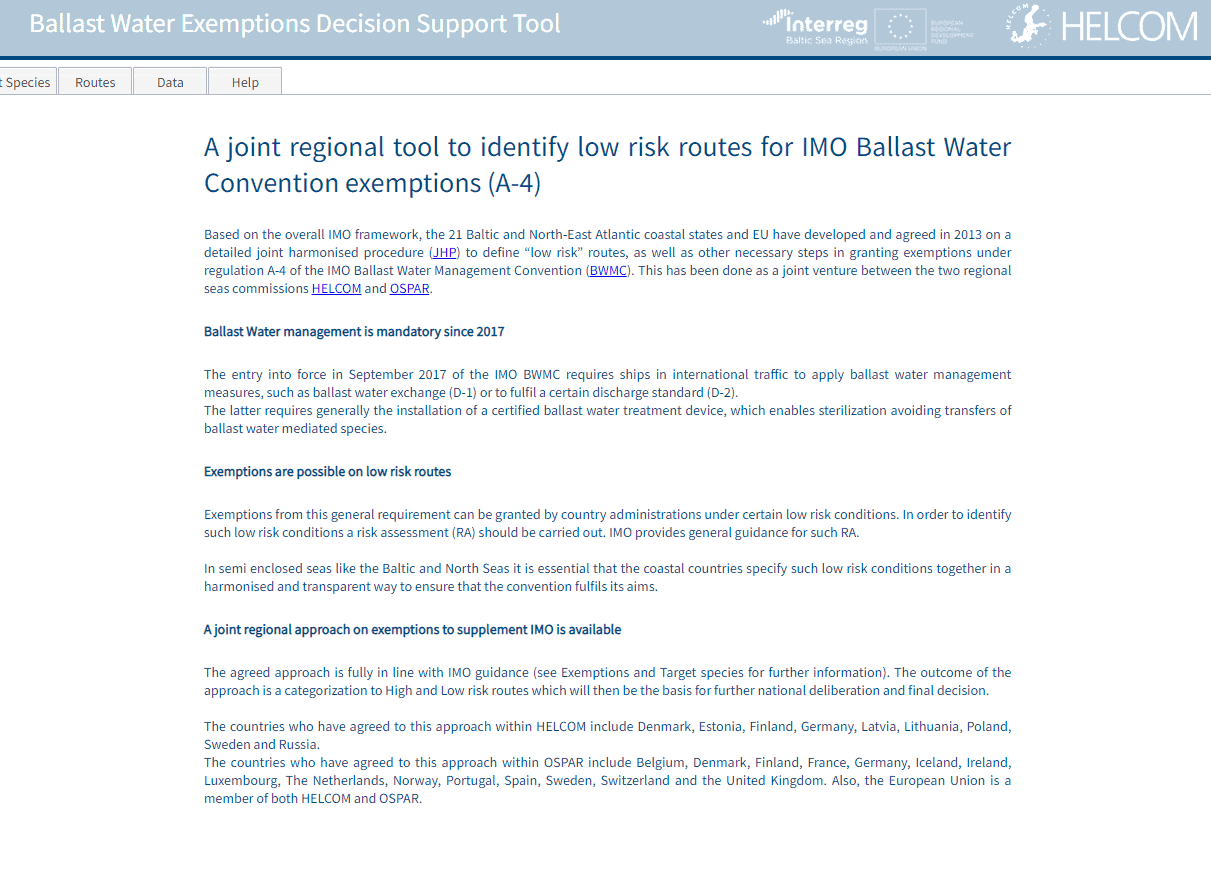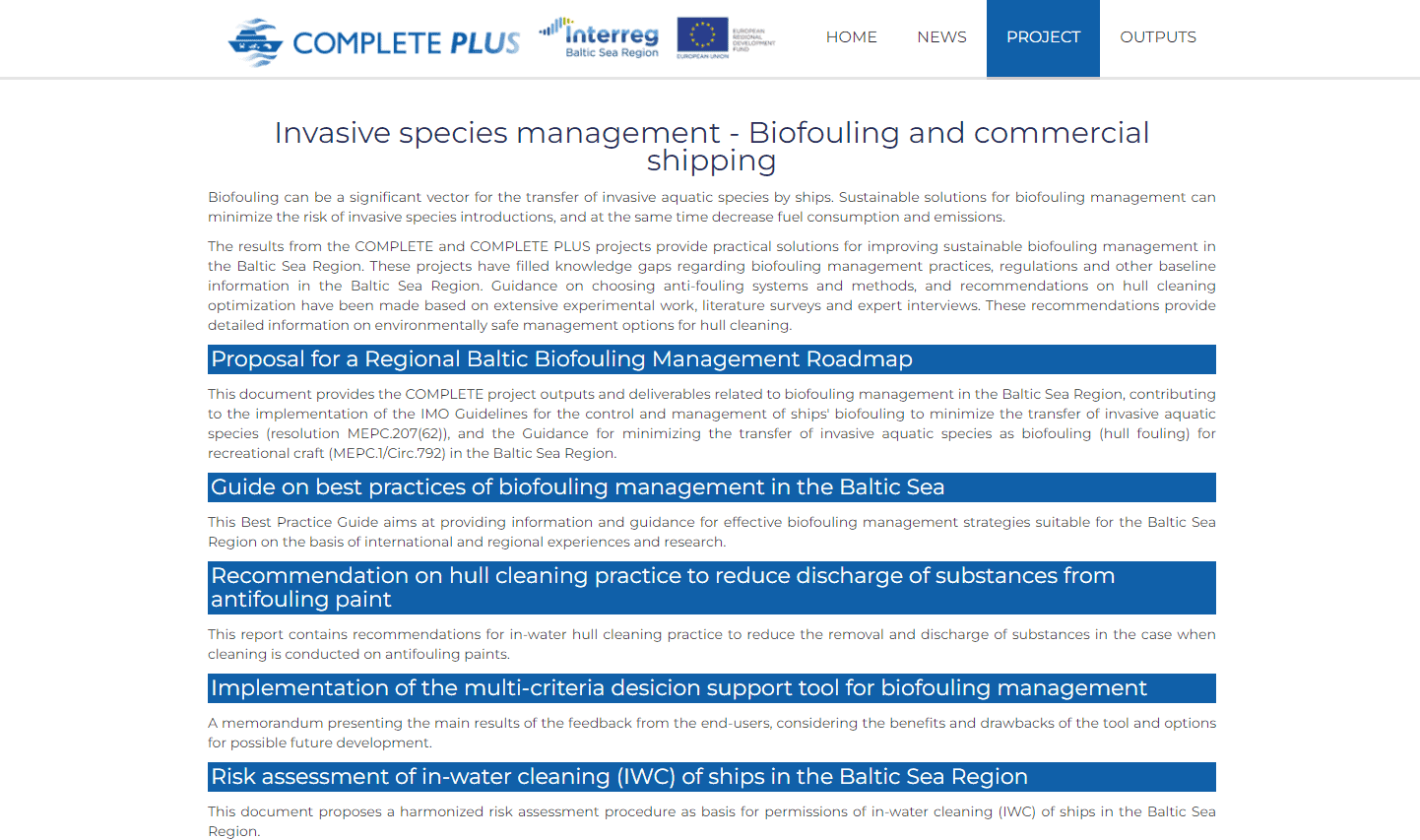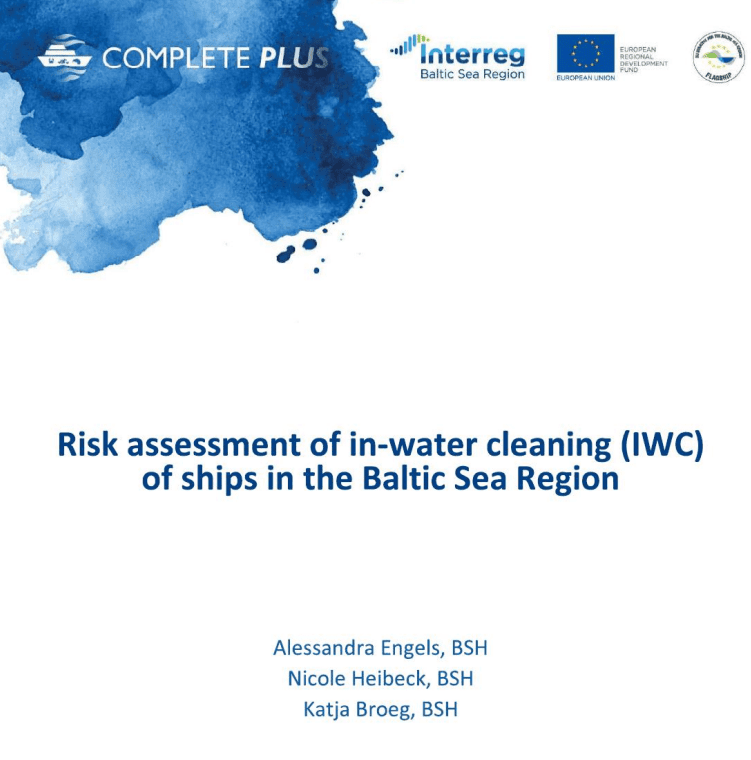COMPLETE PLUS
Biofouling, or biological fouling, is the accumulation of microorganisms, plants, algae, or small animals on wet surfaces that have a mechanical function, causing structural or other functional deficiencies. Shipping contributes to the uncontrolled introduction of invasive species to the Baltic Sea, which has severe environmental and economic consequences. Such concrete challenges as loss of native species, habitat change, reduced landings of coastal fisheries, damage to aquaculture, threatened biodiversity and natural ecosystems of the Baltic Sea are to mention a few. Invasive species introduction and spreading of alien species can be reduced by introducing harmonized solutions shared on a regional level.
COMPLETE PLUS brought the Biofouling Management Roadmap and other tools and guidelines developed in the project COMPLETE into practice. The project reached out to and trained key players, including shipping companies, environmental and maritime authorities, ports, contracting parties of HELCOM in using the tools in their work.
Budgets
in numbers
-
0.75MillionTotal
-
0.59MillionErdf
-
0.00MillionEni + Russia
-
0.00MillionNorway
Achievements
One of the project´s main tools was the Early Warning System (EWS) which is highly relevant for an exchange of information on harmful aquatic organisms and pathogens (HAOP). EWS improves the capacity of organisations involved in monitoring and surveillance of HAOP and non-indigenous species (NIS) in the Baltic Sea region. The predecessor project COMPLETE identified over 30 such organisations (environmental authorities, research institutes, NGOs, and others) and 10 institutions entitled to send a warning signal (e.g. port authorities). COMPLETE PLUS ensured that information canals for EWS were working and the criteria for issuing the warning signal were equally understood by all end-users. The risk assessment tool under the HELCOM-OSPAR Joint Harmonized Procedure (JHP) is currently used to identify routes where exemptions to ballast water (fresh or saltwater held in the ballast tanks and cargo holds of ships to improve stability) management under the Ballast Water Management Convention (BWMC) can be granted.
The Target Species (TS) list serve as the basis of this risk assessment tool. COMPLETE PLUS renewed the TS list to enable the full-scale use of the tool by the shipping companies (who applying for exemptions), and by the administrations (who grants these exemptions). The online service developed in COMPLETE PLUS for all non-indigenous species (NIS) data allowed stakeholders, to access these data from one endpoint. It allowed enhancing regional cooperation and facilitating NIS management since the most updated information would be available faster for all the stakeholders, including the contact points of the EWS. All in all, the results from COMPLETE PLUS provided practical solutions for improving biofouling management in the Baltic Sea region.
Outputs
Functional Non-Indigenous Species monitoring data flow

Information on technical solutions for optimised biofouling management in the Baltic Sea region

Risk assessment procedure for in-water cleaning (IWC)

Project Stories
-
14.04.2021
Interreg fights aliens in the Baltic Sea
At any moment in the Baltic marine area, about 2,000 ships are transporting people, goods, but also stowaways: marine organisms from distant places, like Harris mud crabs, that colonise the Baltic Sea waters. The Interreg project COMPLETE brought together people with smart ideas how to translate the existing regulations into a working system to prevent alien species from invading the Baltic Sea.Read full story
Partners
Kotka Maritime Research Association (KMRA)
- TownKotka
- RegionKymenlaakso
- CountryFinland
- RepresentativeMiina Karjalainen
- Phone
- E-Mail
- Web
Klaipeda University (KU)
- TownKlaipėda
- RegionKlaipėdos apskritis
- CountryLithuania
- RepresentativeSergej Olenin
- Phone
- E-Mail
- Web
Baltic Marine Environment Protection Commission - Helsinki Commission (HELCOM)
- TownHelsinki
- RegionHelsinki-Uusimaa
- CountryFinland
- RepresentativeMarta Ruiz
- Phone
- E-Mail
- Web
Finnish Environment Institute (SYKE)
- TownHelsinki
- RegionHelsinki-Uusimaa
- CountryFinland
- RepresentativeMaiju Lehtiniemi
- Phone
- E-Mail
- Web
University of Helsinki (UH)
- TownHelsingin yliopisto
- RegionHelsinki-Uusimaa
- CountryFinland
- RepresentativeAnnukka Lehikoinen
- Phone
- E-Mail
- Web
Chalmers University of Technology (CHALMERS)
- TownGothenburg
- RegionVästra Götalands län
- CountrySweden
- RepresentativeLena Granhag
- Phone
- E-Mail
- Web
Latvian Institute of Aquatic Ecology (LIAE)
- TownRiga
- RegionRīga
- CountryLatvia
- RepresentativeSolvita Strāķe
- Phone
- E-Mail
- Web
Federal Maritime and Hydrographic Agency (BSH)
- TownHamburg
- RegionHamburg
- CountryGermany
- RepresentativeKatja Broeg
- Phone
- E-Mail
- Web
South-Eastern Finland University of Applied Sciences (XAMK)
- TownKotka
- RegionKymenlaakso
- CountryFinland
- RepresentativeJustiina Halonen
- Phone
- E-Mail
- Web
University of Tartu (UTARTU)
- TownTartu
- RegionLõuna-Eesti
- CountryEstonia
- RepresentativeHenn Ojaveer
- Phone
- E-Mail
- Web
Keep the Archipelago Tidy Association (KAT)
- TownTurku
- RegionVarsinais-Suomi
- CountryFinland
- RepresentativeAtte Lindqvist
- Phone
- E-Mail
- Web
-
Project managerMiina KarjalainenKotka Maritime Research Association
-
Legal representativeAnna KiiskiKotka Maritime Research Association (KMRA)
-
Financial managerPiia NygrenKotka Maritime Research Association
-
Communication managerMiina KarjalainenKotka Maritime Research Association



